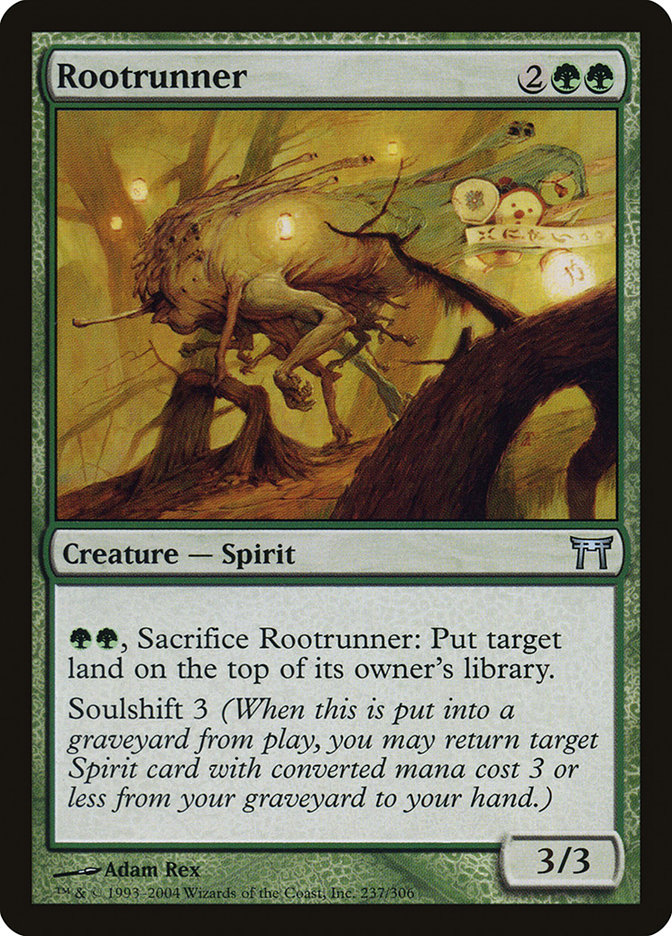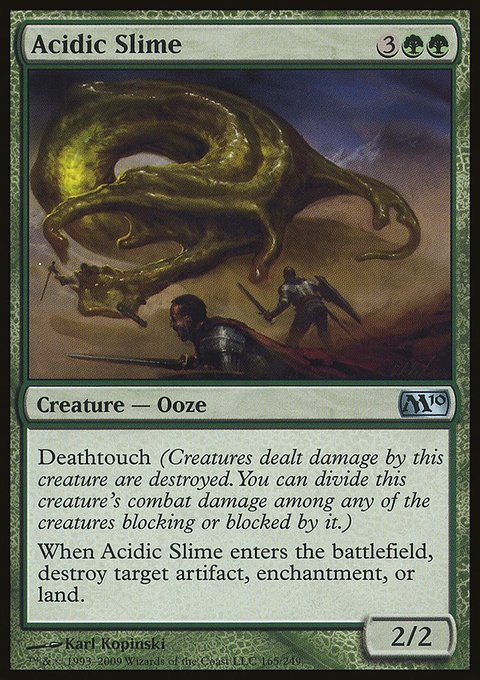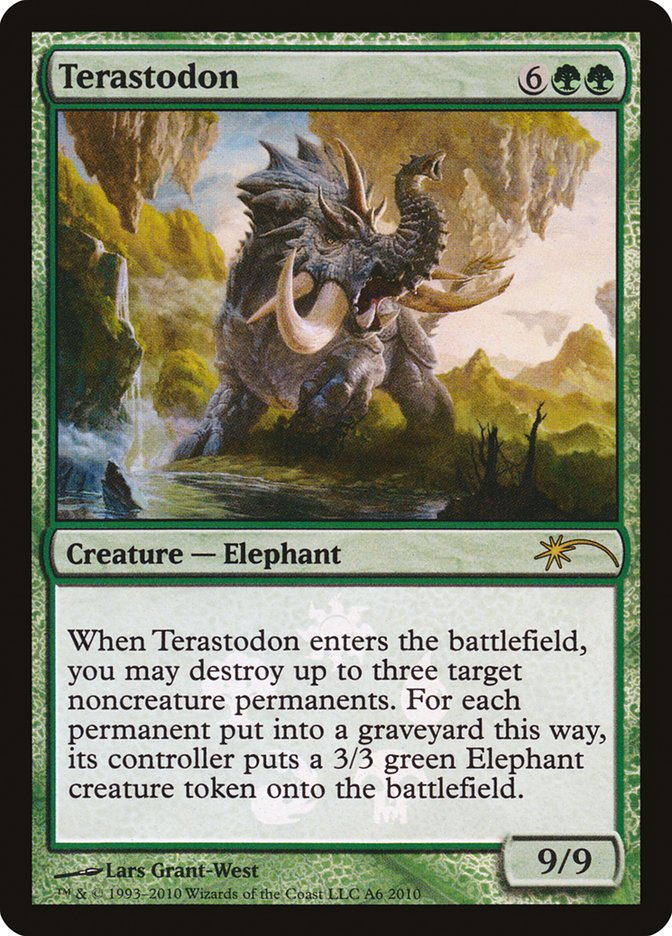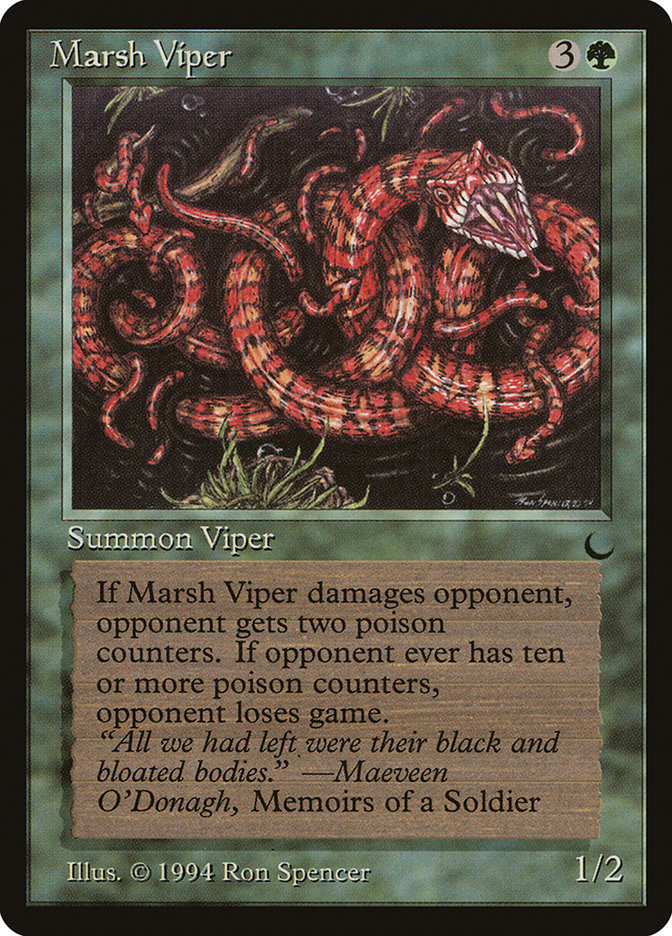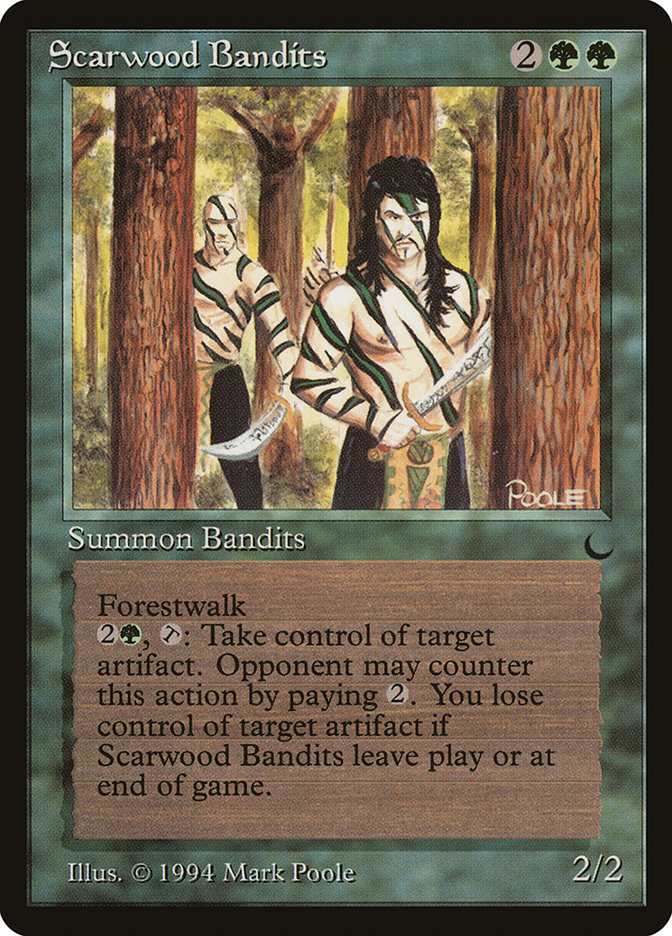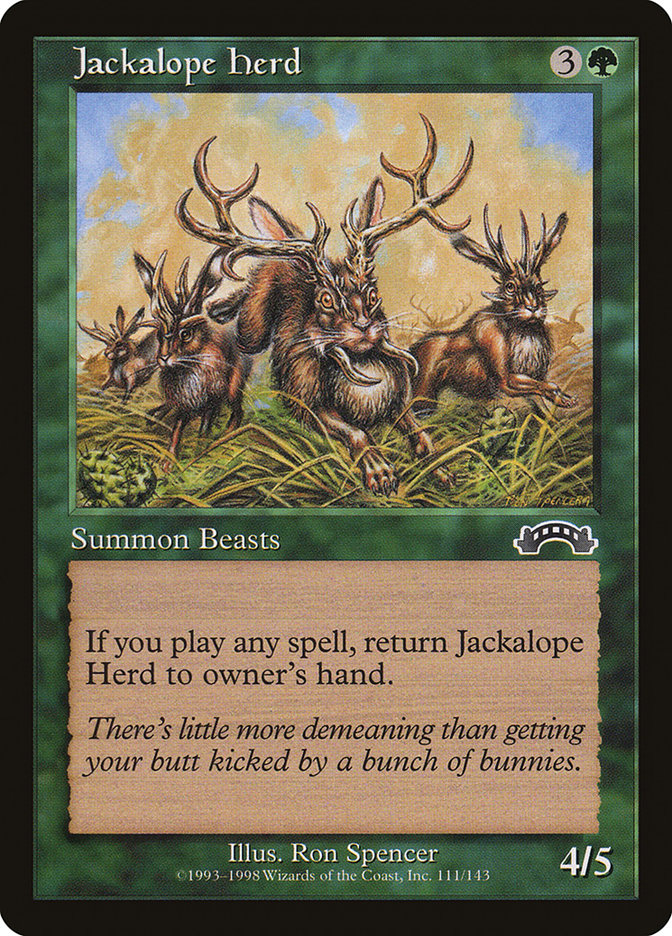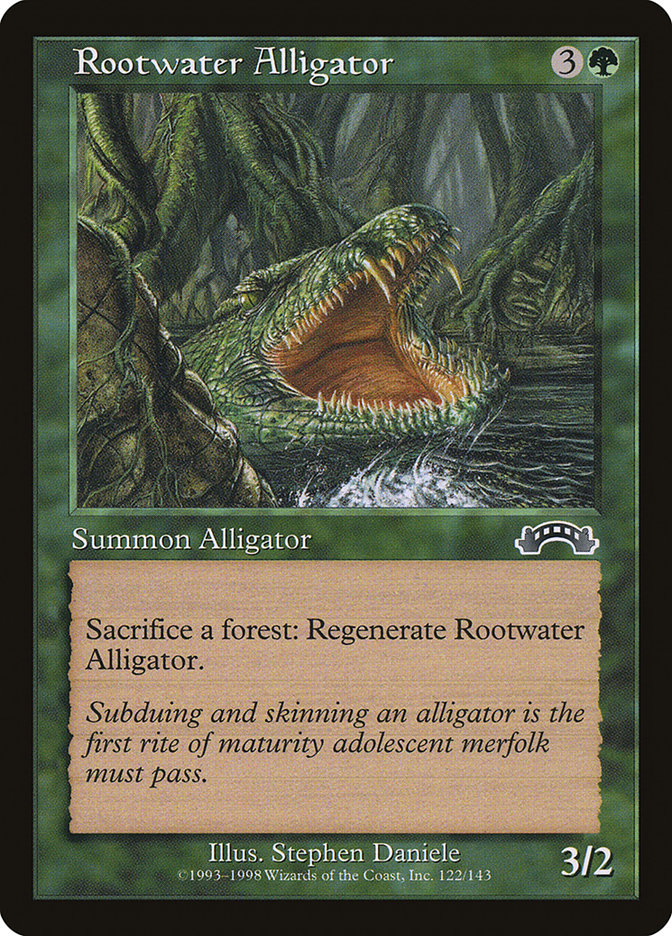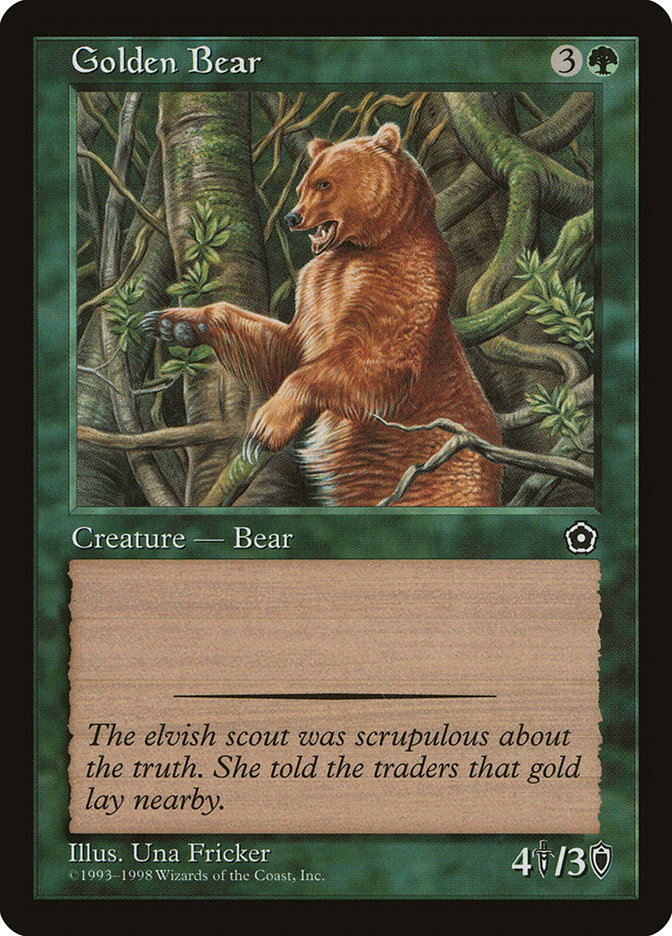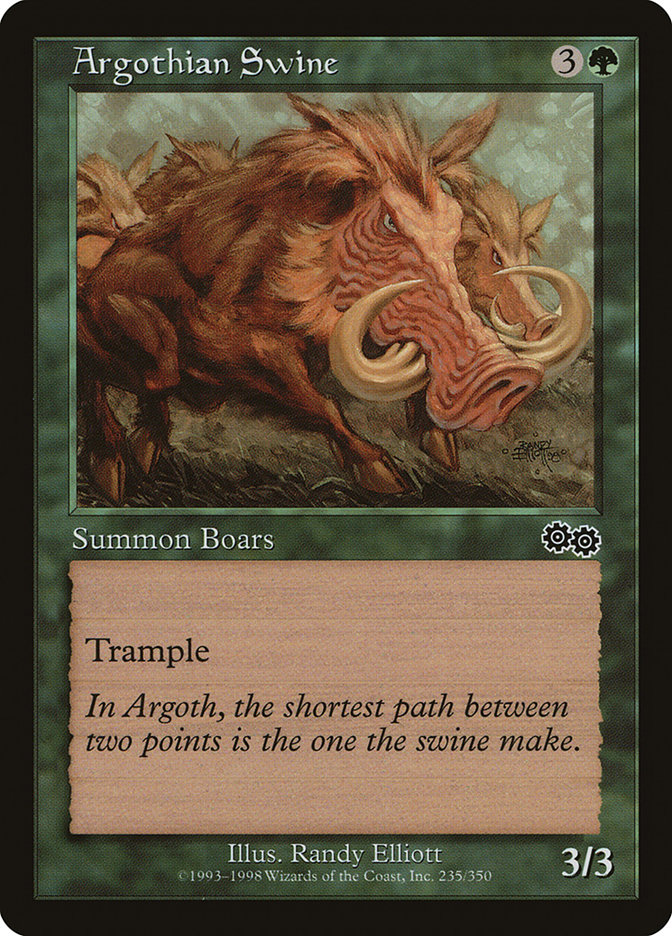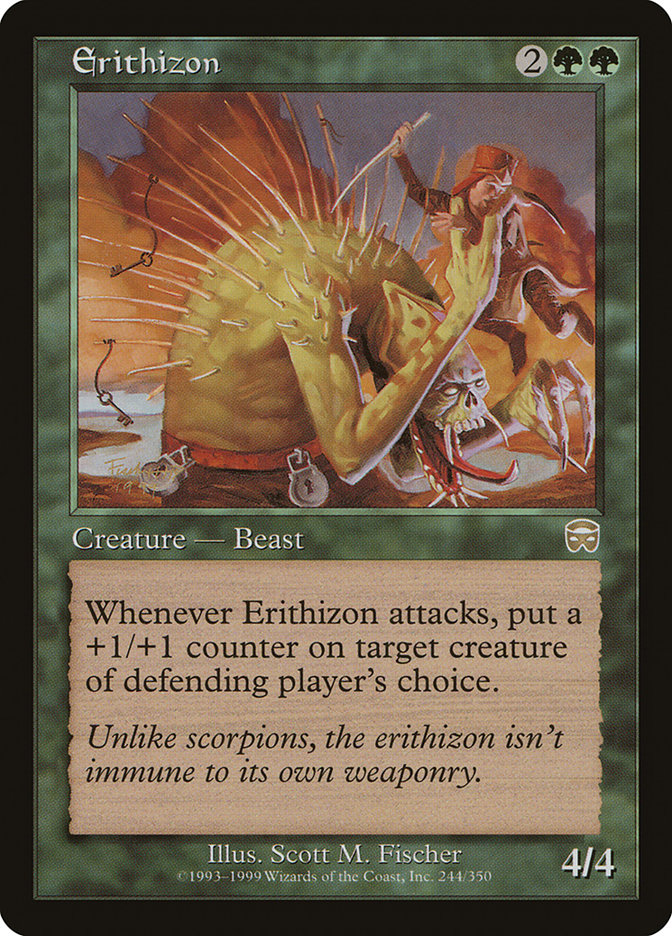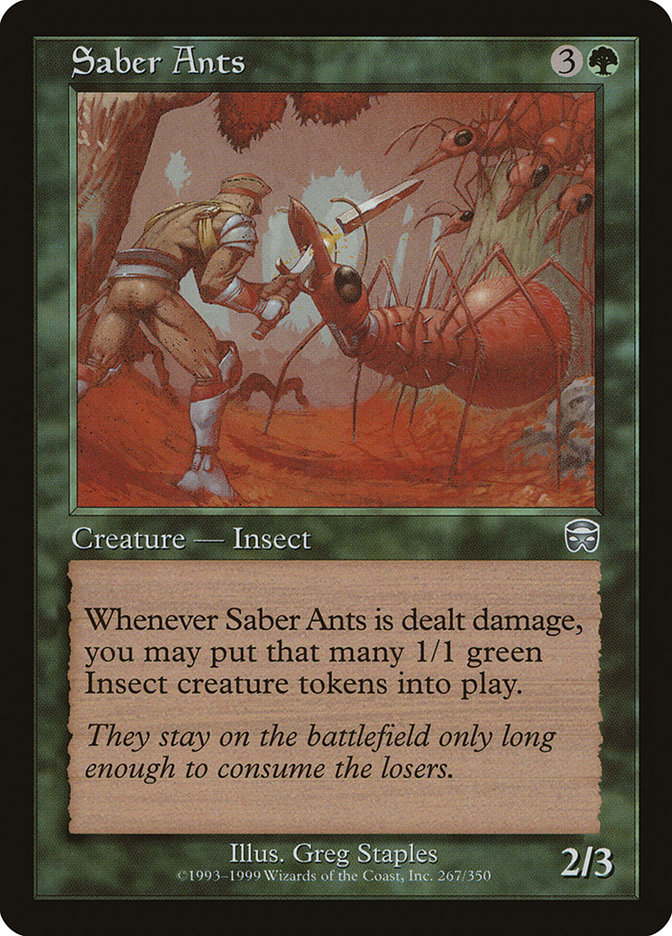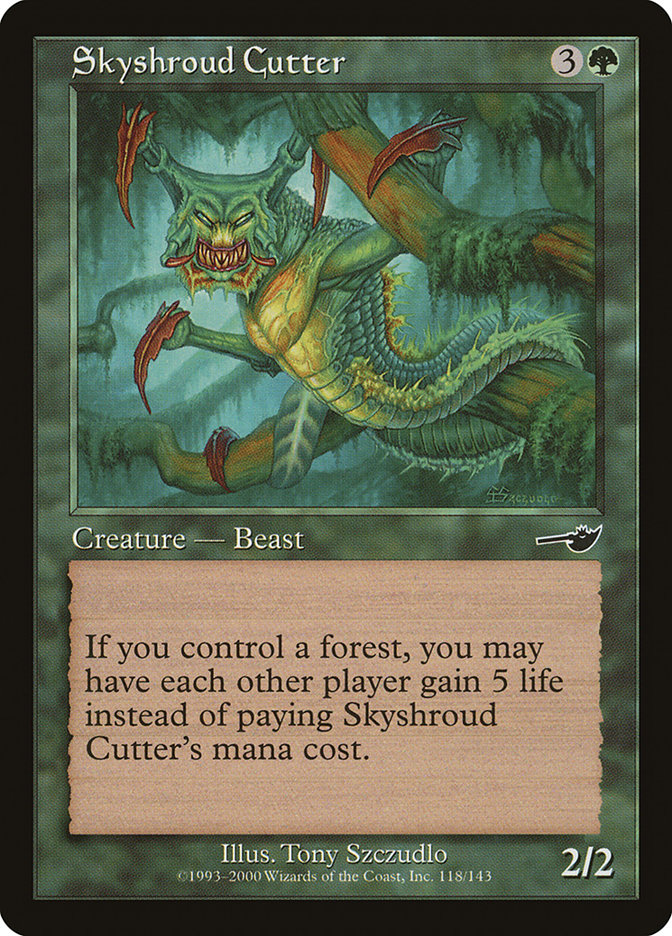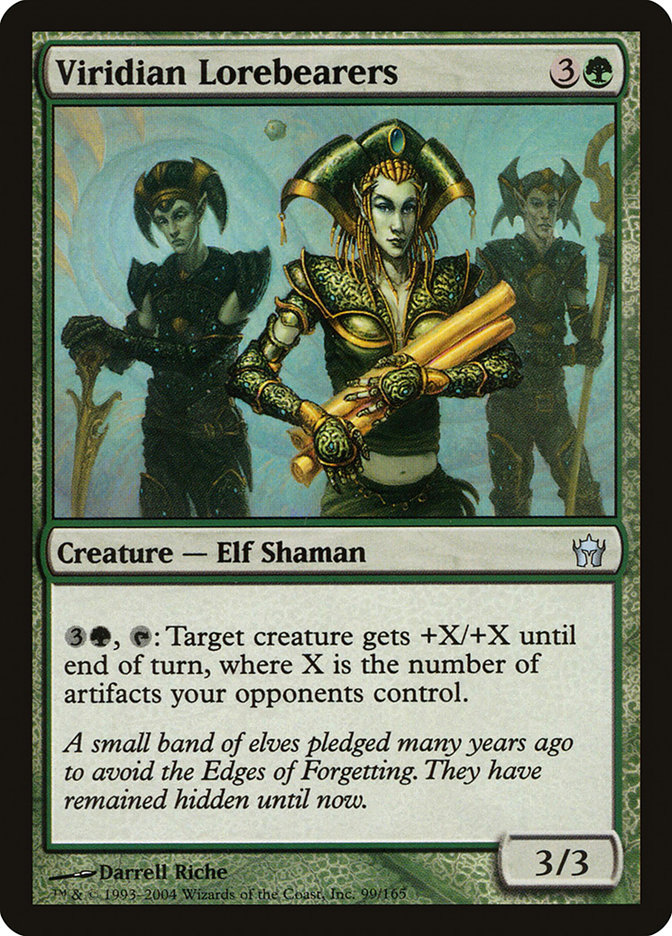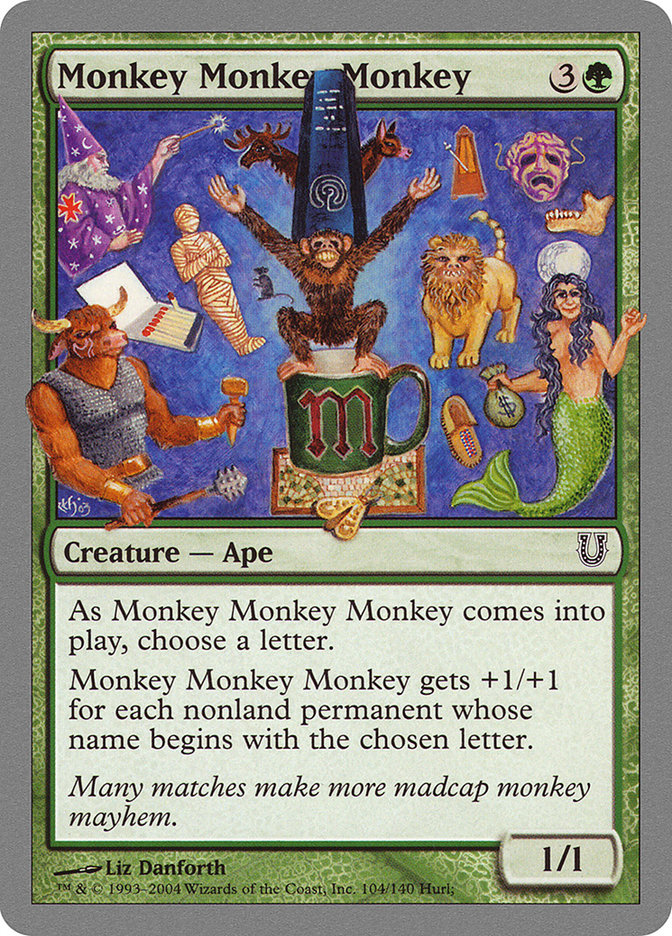Rootrunner MTG Card
| Card sets | Released in 2 setsSee all |
| Mana cost | |
| Converted mana cost | 4 |
| Rarity | Uncommon |
| Type | Creature — Spirit |
| Abilities | Soulshift |
| Power | 3 |
| Toughness | 3 |
Text of card
, Sacrifice Rootrunner: Put target land on the top of its owner's library. Soulshift 3 (When this is put into a graveyard from play, you may return target Spirit card with converted mana cost 3 or less from your graveyard to your hand.)
Cards like Rootrunner
Rootrunner stands as a unique creature in MTG with its potential to disrupt land-based strategies. If we look at cards like Acidic Slime, we find some similarities, as Acidic Slime also provides a method for dealing with lands by destroying any target, including lands. However, Acidic Slime has the versatility of removing artifacts and enchantments, unlike Rootrunner which solely focuses on lands. Moreover, Acidic Slime offers deathtouch, making it a more formidable blocker.
Comparatively, Terastodon also allows you to interact with lands, but on a grander scale. While Rootrunner can put a land on top of its owner’s library, Terastodon can outright destroy up to three target noncreature permanents, replacing them with 3/3 elephants. This not only disrupts land plays but can significantly alter the board state with potential for offensive pressure.
Overall, Rootrunner has a niche role, especially in decks focused on land control. Its ability to bounce lands repeatedly with its sacrifice ability gives it a unique standing among its peers. Yet, it’s clear that in MTG, there are various approaches to land interaction, offering players different tactical advantages.
Cards similar to Rootrunner by color, type and mana cost
Card Pros
Card Advantage: Rootrunner provides strategic depth by potentially disrupting your opponent’s mana base, making it harder for them to play spells or respond to your moves effectively. This can result in a form of card advantage as it forces your opponent to potentially waste turns reestablishing their mana base while you continue to develop your board and advance your game plan.
Resource Acceleration: From a resource acceleration perspective, Rootrunner can serve as a temporary setback for your opponent’s resource development. By bouncing a land to their hand, you slow down their progression, effectively giving you a subtle tempo boost which can be crucial in the right situation.
Instant Speed: The ability to sacrifice Rootrunner at instant speed for its land-return effect adds a layer of surprise and control to your gameplay. With this flexibility, you can wait for the ideal moment to disrupt your opponent’s strategy or sidestep removal spells that would otherwise eliminate Rootrunner without value.
Card Cons
Discard Requirement: Rootrunner’s sacrifice mechanic obligates you to sacrifice a land. This can hinder your progress, especially when maintaining a steady land flow is crucial.
Specific Mana Cost: With a requirement of both green mana and generic mana, Rootrunner may not fit seamlessly into multicolored decks that can’t reliably produce the necessary mana types.
Comparatively High Mana Cost: For a creature with its abilities, Rootrunner’s mana cost is on the higher side. Players might opt for more cost-effective creatures that provide similar utility or stats without sacrificing resources.
Reasons to Include Rootrunner in Your Collection
Versatility: Rootrunner offers flexibility in green-based decks. Its ability to bounce a land provides both a method for mana fixing and disruption against opponent’s land strategies. This makes Rootrunner adapt well to various playstyles, from aggressive to control decks.
Combo Potential: Combined with cards that allow you to play additional lands or benefit from land entering the battlefield, Rootrunner can become a key piece in powerful land-based combos. Its sacrifice ability to shuffle a land back into a library is also a neat trick to disrupt strategies reliant on specific nonbasic lands.
Meta-Relevance: In formats where land destruction or land manipulation plays a crucial role, having Rootrunner can be a game-changer. It’s able to combat decks that aim to assemble land combos or utilize lands with powerful activated abilities, maintaining a relevant presence in the current meta.
How to beat
Rootrunner presents an intriguing challenge on the battlefield of Magic: The Gathering with its ability to return a land from the battlefield to its owner’s hand. The card is especially tough in games with a focus on land destruction or when executing a strategy that revolves around limiting your opponent’s mana resources. The key to circumvent this card’s irritating ability is to employ land advantage tactics or use instant speed removal before the player can utilize Rootrunner’s sacrifice ability. Utilizing graveyard retrieval can also offset the inconvenience of having your lands bounced back to your hand.
Land indestructibility is another tactic – cards like Terra Eternal can ensure your lands remain untouched by Rootrunner’s grasp. It’s also beneficial to limit the number of lands to what’s necessary, rely on mana rocks or dorks for resources, diminishing the impact Rootrunner might have. Spot removal, such as Path to Exile, can effectively remove Rootrunner before it starts to be a nuisance, thus it’s wise to hold onto such cards until Rootrunner enters the fray.
Finally, keeping up the pressure and focusing on an aggressive gameplay strategy will each help to keep Rootrunner from becoming too much of an interference, allowing you to maintain the upper hand in your MTG matches.
Where to buy
If you're looking to purchase Rootrunner MTG card by a specific set like Champions of Kamigawa and The List, there are several reliable options to consider. One of the primary sources is your local game store, where you can often find booster packs, individual cards, and preconstructed decks from current and some past sets. They often offer the added benefit of a community where you can trade with other players.
For a broader inventory, particularly of older sets, online marketplaces like TCGPlayer, Card Kingdom and Card Market offer extensive selections and allow you to search for cards from specific sets. Larger e-commerce platforms like eBay and Amazon also have listings from various sellers, which can be a good place to look for sealed product and rare finds.
Additionally, Magic’s official site often has a store locator and retailer lists for finding Wizards of the Coast licensed products. Remember to check for authenticity and the condition of the cards when purchasing, especially from individual sellers on larger marketplaces.
Below is a list of some store websites where you can buy the Rootrunner and other MTG cards:
 BUY NOW
BUY NOW BurnMana is an official partner of TCGPlayer
- eBay
- Card Kingdom
- Card Market
- Star City Games
- CoolStuffInc
- MTG Mint Card
- Hareruya
- Troll and Toad
- ABU Games
- Card Hoarder Magic Online
- MTGO Traders Magic Online
See MTG Products
Printings
The Rootrunner Magic the Gathering card was released in 2 different sets between 2004-10-01 and 2004-10-01. Illustrated by Adam Rex.
| # | Released | Name | Code | Symbol | Number | Frame | Layout | Border | Artist |
|---|---|---|---|---|---|---|---|---|---|
| 1 | 2004-10-01 | Champions of Kamigawa | CHK | 237 | 2003 | Normal | Black | Adam Rex | |
| 2 | The List | PLST | CHK-237 | 2003 | Normal | Black | Adam Rex |
Legalities
Magic the Gathering formats where Rootrunner has restrictions
| Format | Legality |
|---|---|
| Commander | Legal |
| Legacy | Legal |
| Paupercommander | Restricted |
| Modern | Legal |
| Oathbreaker | Legal |
| Vintage | Legal |
| Duel | Legal |
| Predh | Legal |
| Penny | Legal |
